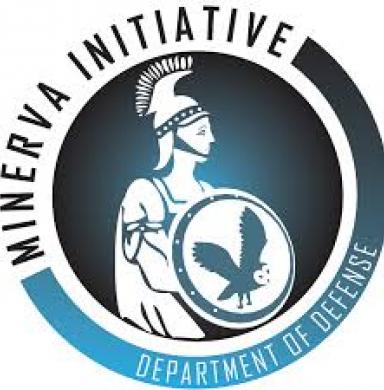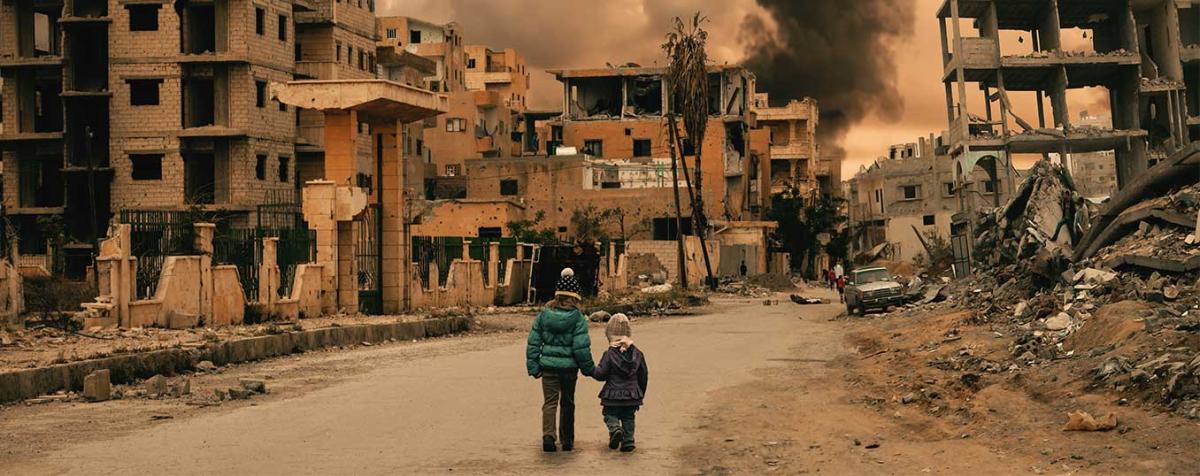Security
Responding to new and emerging security threats.
With longstanding alliances falling into jeopardy and the world’s most powerful nations grappling with the idea of peace, security remains one of the most important topics of our time.
That’s why Professor Deborah Avant and her colleagues at the Sié Chéou-Kang Center for International Security and Diplomacy address such issues as civil-military relations, the roles of non-state actors in controlling violence, and the status of women in war-torn societies. Korbel students are digging into security issues of great gravity — from weapons of mass destruction to the military’s use of autonomous systems to issues of human security such as human trafficking. When you join them, you will be part of a diverse and committed student body, learning from leaders in the field and engaging with top security professionals on everything from counterterrorism and criminal investigation to counterintelligence and cybercrime.
Faculty Spotlight


Selected Courses
INTS 4031
Conflict and Security in Cyberspace
About this Course
Cyber conflict is a new and complicated strategic problem that will engage the international community at many different levels. The cyber environment challenges traditional strategic thinking, and work on an adequate policy framework to assess and manage cyber conflict is at an early stage. Many traditional security concepts will need to be adjusted for the cyber environment through review and discussion. This class will look at both the national and international dimensions of cyber conflict in the larger international security context.
INTS 4280
Contemporary Peace Operations: Disarmament, Demobilization, & Reintegration
About this Course
Disarming, demobilizing and reintegration (DDR) of former fighters in the aftermath of conflict is as old as war itself. Tens of thousands of soldiers were voluntarily DDR(ed) during the Roman-Etruscan wars in the 3rd century BC and virtually every conflict since. In fact, no fewer than 60 DDR initiatives have taken place globally since the UN and major bi-lateral engagement the late 1980s. While most were launched in the wake of international or civil wars as part of an internationally mandated peace support operation, shifting conflict dynamics and emergent caseloads over the last decade continue to alter the landscape in which DDR operations are implemented. Whether occurring in a humanitarian crisis, as an outcome of a peace accord or during active conflict, DDR represents a voluntary civilian led non-violent policy option for peacebuilding and human security for the international community. Often applied in a post conflict environment, the global caseload in 2014 was estimated at approximately 250,000 DDR candidates spread across more than 20 planned or ongoing DDR operations. Presently, DDR targets persons in combatant and non-combatant roles from statutory armies and non-state armed groups. It is not uncommon for DDR to serve as tool for security sector reform and transformation efforts aimed at downsizing and legitimizing armed forces under civilian control. In doing so DDR is a unique policy tool that enhances the resilience of local, national and regional actors, by addressing various peace consolidation issues spanning the civilian and security sectors. The course will utilize illustrative global case studies to examine 3 distinct ‘generations’ of DDR since the 1980s. Tracking the evolution of DDR in contemporary peace operations, the course will demonstrate the critical role DDR continues to play in peacebuilding and recovery in settings as diverse as the Balkans and Philippines where DDR is used to facilitate the ‘normalization of relations’, to the Sahel, the Horn of Africa, South America and the Middle East where DDR addresses mercenaries and terrorism. DDR’s current role in stabilization efforts in the Ukraine, Afghanistan and The Sudan will be juxtaposed with political stability and development issues in Central America and Southern Africa where gang violence and veteran’s concerns are related to DDR outcomes.The first generation of DDR occurred in the wake of the Cold War. Typified by verifiable caseloads under unified command and control, these occurred regionally in Latin America and Southern Africa. In the mid-2000s, 2nd Generation policy approach emerged in response to the perception by the international community that DDR, and reintegration specifically, was not achieving intended development aims. This led to a broad range of initiatives targeting communities as a means to facilitate enabling conditions for DDR. Presently, DDR is undergoing a 3rd shift. The monetization of DDR is creating a cottage industry for former fighters traveling across international borders rejoining armed groups as mercenaries. At the same time peace operations are receiving DDR mandates in areas where conflict is ongoing and insurgent groups slated for DDR are associated with ‘terrorist’ organizations complicating the legal and political environment.
INTS 4049
Addressing Complex Interagency Problems
About this Course
This class will ask students develop the skills and addresses the challenges associated with the process by which policy recommendations are developed within the United States Government, particularly as they relate to complex multi-dimensional security problems. Students will learn about the roles played by various departments and agencies that are engaged in the policy making process, as well as how external actors impact the development of national security policy. This class will also give students the opportunity to learn about the policy making process in the United States inter-agency environment through a series of presentations from practitioners as well as hands-on experience via role-playing and the development of briefing memos, presentations and other materials. Students will learn about the history, structure and function of the interagency process, including past and current reform processes such as the Clinton Administration’s Presidential Decision Directive on Managing Complex Contingency Operations (PDD-56) as well as the more recent Project on National Security Reform. Students will also hear several real-life examples of interagency policy-making from former government officials and various subject-matter experts. Students will be expected to role-play members of a mock National Security Council (NSC) team or as representatives of various US Government Departments and Agencies involved in the interagency decision-making process. Students will identify an actual national security problem and be responsible for debating and agreeing to a set of policy recommendations within the format and structure of the mock NSC. Select students may have the opportunity to present their recommendation to a current member of the National Security Council via video-teleconference. At the end of course, students should have a fundamental understanding of the strengths and weaknesses of the current system; what constitutes good NSC products and how to produce them; and how concession and compromise, trade-offs, external public pressure, intelligence issues and budget realities all can play a role in how national security decisions are made.
Faculty Publications
Related News Stories

General Casey Speaks with Sié Fellows about Nation's Greatest Security Concerns
Korbel alumnus General George W. Casey Jr., (Ret.) (MA '80), former Chief of the Staff of the U.S. Army and Commander of the Multi-National Force in Iraq, recently took time to sit down to breakfast and talk with the Josef Korbel School's Sié Fellows and undergraduate students.

Professor’s Research Explores How Humans Respond to Autonomous Systems
When the Department of Defense (DOD) needs to get up to speed on the social, cultural, behavioral and political trends affecting the nation’s security, it calls in a special kind of special forces.



